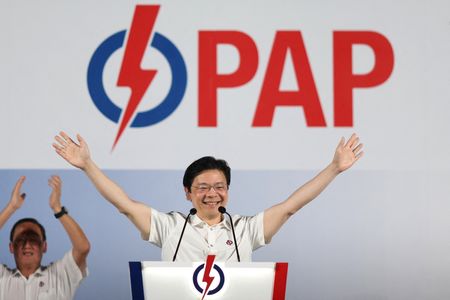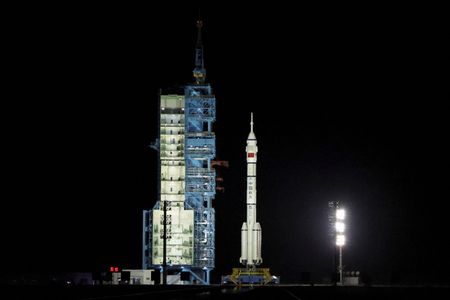(Reuters) – Singapore holds a parliamentary election on May 3 that will be contested by 11 parties across the city state of 6 million people with 2.76 million registered to vote.
Following are details of the key parties running and some of their policy platforms.
PEOPLE’S ACTION PARTY
The conservative People’s Action Party has ruled Singapore since independence in 1965 and has dominated politics ever since. Up until 1981, it won every seat in parliament and held 83 of 93 seats in the last legislature.
The PAP has maintained its grip on power through continuity having overseen Singapore’s rapid growth, with a track record of clean governance, economic stability, attracting investment and providing measures for its people to manage persistently high living costs. It is led by Lawrence Wong, 52, Singapore’s fourth prime minister, who is contesting his first election as PAP leader.
* Continued provision of financial support of up to S$6,000($4,590) over 6 months to people who lost jobs * Give households vouchers, cash payouts and utilitiesrebates to help with living expenses * Add 13,600 beds to healthcare system in the next fiveyears * Build more than 50,000 new public housing flats over thenext three years to ease supply crunch
WORKERS’ PARTY
This social democratic party is the largest among the opposition parties and was the second biggest in the last parliament, with 10 seats, a record that built on its six seats won in the previous two elections.
It is led by Pritam Singh, a 49-year-old lawyer whose main advocacy is for a more balanced political system in Singapore, with alternative voices to the PAP, with the long-term goal of the opposition controlling a third of the legislature.
* Exempt essential goods, such as basic food items, fromconsumption tax * Raise the contributions from reserves to fiscal policy to60% from 50% currently * Implement a redundancy insurance scheme that will pay out40% of a citizen’s last drawn salary * Offer 70-year public housing leases that cost less thanthe current 99-year leasehold option
PROGRESS SINGAPORE PARTY
The party was launched by former PAP lawmaker Tan Cheng Bock in 2019 after he felt the “foundations of good governance” in Singapore were being eroded. It gained two non-constituency seats in 2020 after it received the highest vote share of 48.7% in one ward among other opposition parties that lost to PAP.
* Reduce consumption tax from 9% to 7%, and exempt essentialgoods, such as basic food items * Allow citizens to buy public housing without adding thecost of land until they resell their houses * Government to procure and distribute drugs centrally toboth public and private sector, as well as pay for basic healthinsurance premiums * Implement a minimum living wage of S$2,250 ($1,721) permonth for all resident Singaporean workers
SINGAPORE DEMOCRATIC PARTY
The party has a social liberal agenda with an emphasis on human rights. It has not held a parliamentary seat since 1997. The most seats it has won is 3, in 1991. It is led by Chee Soon Juan, 62, who has been sued by ruling party leaders for defamation.
* Reduce consumption tax and exempt essential goods, such asbasic food items * Introduce non-open market public housing that excludescost of land and can only be sold back to government * Introduce a single-payer universal national healthinsurance system where government manages a central healthcarefund
(Compiled by Jun Yuan Yong, Bing Hong Lok and Martin Petty; Editing by Michael Perry)










